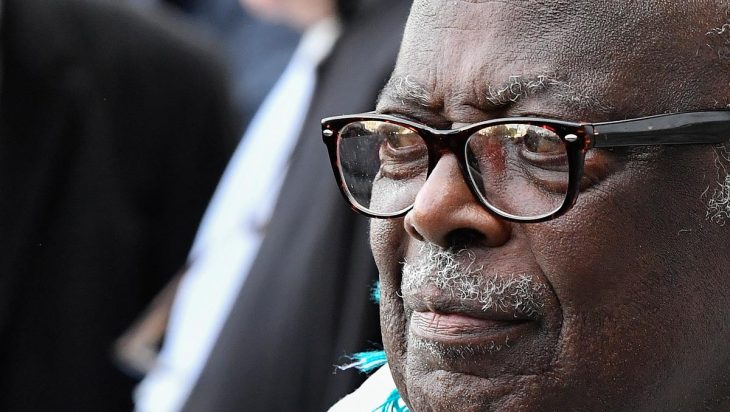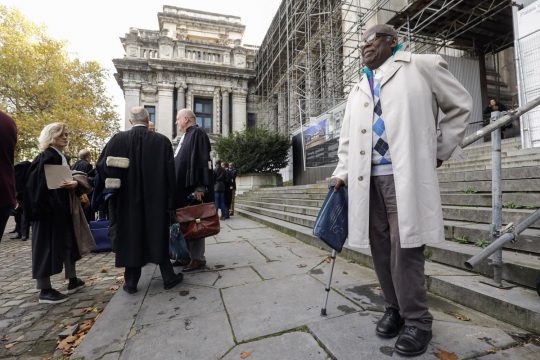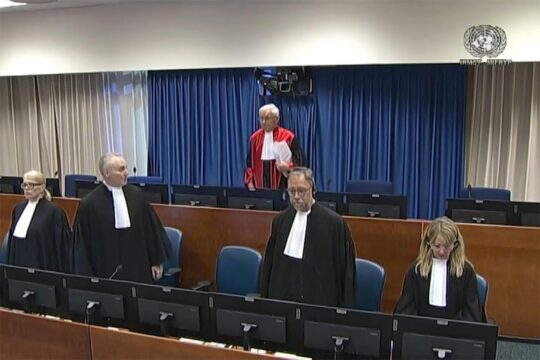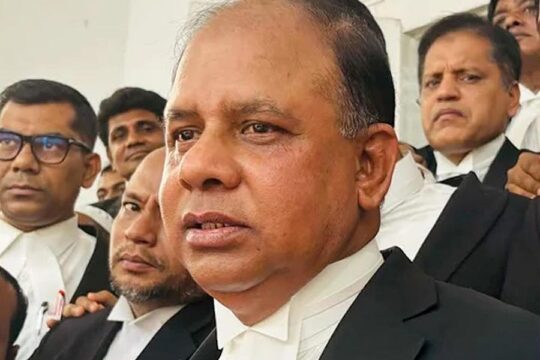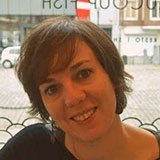Court president Sophie Leclercq went meticulously through the charges, clearly determined not to be distracted. Neretse is portrayed as an activist in the MRND party of former Rwandan president Juvénal Habyarimana, but he said he was "surprised to hear that I was a powerful man in the MRND". He stayed seated because of health problems, appearing educated and polite in his smart jacket, with grey moustache and thick-framed glasses. Neretse said he was a member of the MRND when it was the only party, but that if he had been important, he would not have lost his position as director of the national coffee company in 1992. "I heard on the radio that I was being replaced, without being told what I had done wrong. A multi-party system was being set up and some parties were playing for position. I was assigned to the Ministry of Industry, and then I left the administration to open my own consultancy,” he told the court.
But according to the investigators, when the genocide broke out in April 1994, Neretse was still a member of a committee of decision-makers in his native region of Ruhengeri, northern Rwanda. "I would like us to differentiate between the committee and the prefectoral council. The members of the council were appointed, while the members of the committee were technicians elected by the prefecture to monitor development projects," he insisted. As for the MRND meetings, he said he stopped frequenting them in February 1992. "I couldn't contribute to a party that had pushed me out," he said.
A victims’ friend?
The court president recalled the crimes alleged in this Belgian trial. They include the murders of members of three Tutsi families in the Nyamirambo district of Kigali. Eleven people were killed, including a Belgian national, Claire Beckers, her husband Isaiah Bucyana, their daughter Katia, and a woman named Colette Sissi. All of them were neighbours of Neretse, who is accused of having denounced these people to the soldiers who killed them.
"My wife and I were very close friends of the Sissi," Neretse told the court. He said they helped him find accommodation in 1992 when he left his home provided by the state coffee company. "Colette Sissi called my wife to say 'come next door, there's a house that's free’. It was a middle-class district, mainly occupied by Tutsis but I didn't care. I had very good relations with the Tutsi. My children never even knew which ethnic group they belonged to." He further said that "when [Evariste] Sissi went into exile with his son, I was the only one who dared to support his wife, Colette. I risked my life. I received threatening letters. I don't understand why Sissi says today that I wasn't her friend.”
On the map of the neighbourhood projected on a screen at the hearing, Neretse pointed to his house, which was next to the Sissis’. The Bucyana-Beckers' was the next house. Further away, we see that of the Gakwaya family. They were all direct or indirect victims of Neretse, according to the prosecution.
The killing took place on April 9, 1994. For the previous two days, the massacres of Tutsis had been bloody in Kigali. The three families were trying to leave in convoy for a camp of the United Nations Assistance Mission for Rwanda. "We heard someone shouting ‘you are from the RPF’ [Tutsi rebels of the Rwandan Patriotic Front] and we heard gunfire," Neretse said. As a good neighbour, he claims to have been involved with others on April 10 in burying the bodies of the victims and helping the survivors. "We gave them food and water and organized their funerals," he said. Eleven people were killed that day, but he told the court he only saw seven bodies and that Isaiah Bucyana's body was not among them.
"I did not witness massacre in Mataba"
The second focus of the trial is the crimes committed in Mataba, the accused's hometown, in Ruhengeri prefecture. Neretse went there on April 16, according to the indictment, leading an Interahamwe militia formed by guards of the ACEDI-Mataba school (Association for Culture, Education and Integrated Development), which he founded in 1989. This militia allegedly carried out numerous killings in the region, including the murders of Joseph Mpendwanzi, a Hutu opposition member whose two children are civil parties in the trial, and Anastase Nzamwita, a former state coffee company employee killed by Interahamwe. One of these Interahamwe was from the ACEDI-Mataba school, according to a witness in the trial. Nzamwita was beaten to death and thrown into the Nyabarongo River.
"When I arrived in Mataba, there were not many Tutsis in the region. The killings were almost over. All those who were to be killed had been dealt with, I was told. I did not witness any massacre in Mataba," Neretse told the court. He later stated that he had seen "some people chasing others" on the hill. He explained that he had hired additional staff to ensure the safety of the ACEDI-Mataba school following an attack on Tutsi students by extremist Hutu students in 1993. These new guards, young men from the region, did not become Interahamwe militia, he asserted, challenging testimonies that this militia was housed at the school, and that he maintained it.
"Why would so many witnesses lie?" the president asked. Neretse said he was "surprised" by their statements. But he had an explanation. "Some teachers at the school did not tolerate me bringing in guards. They were teachers who participated in the 1993 unrest and were reprimanded. ACEDI-Mataba was one of the few schools in the country where there were no deaths, because there were these guards. How could the guards abandon the students? That was not an option," he said. "If I had not arrived in Mataba, there would have been dozens of deaths. Neretse said the witnesses were wrong and that people they cited as murderers were never guards of the ACEDI-Mataba school.
The trial continues with the hearing of so-called "context" witnesses, then investigators. On Friday, relatives of the victims and two survivors are scheduled to testify about the April 9 killings in Nyamirambo.


